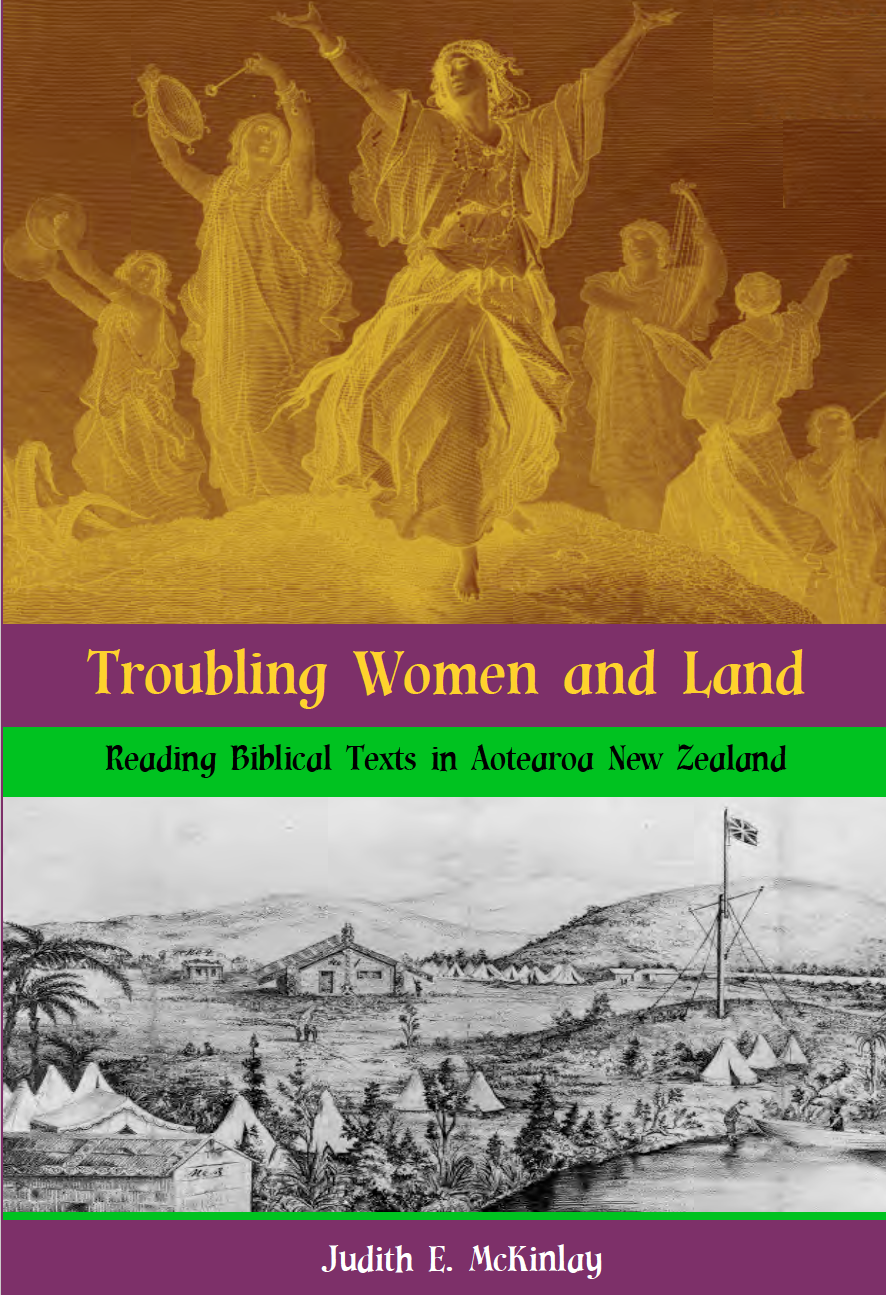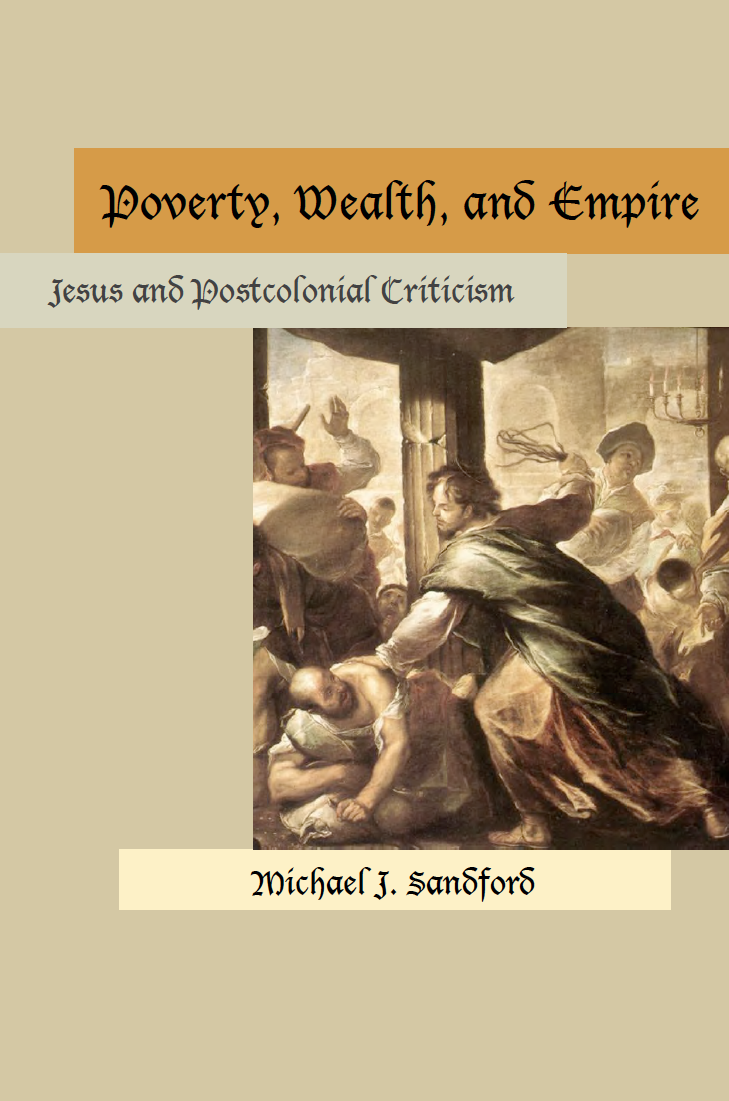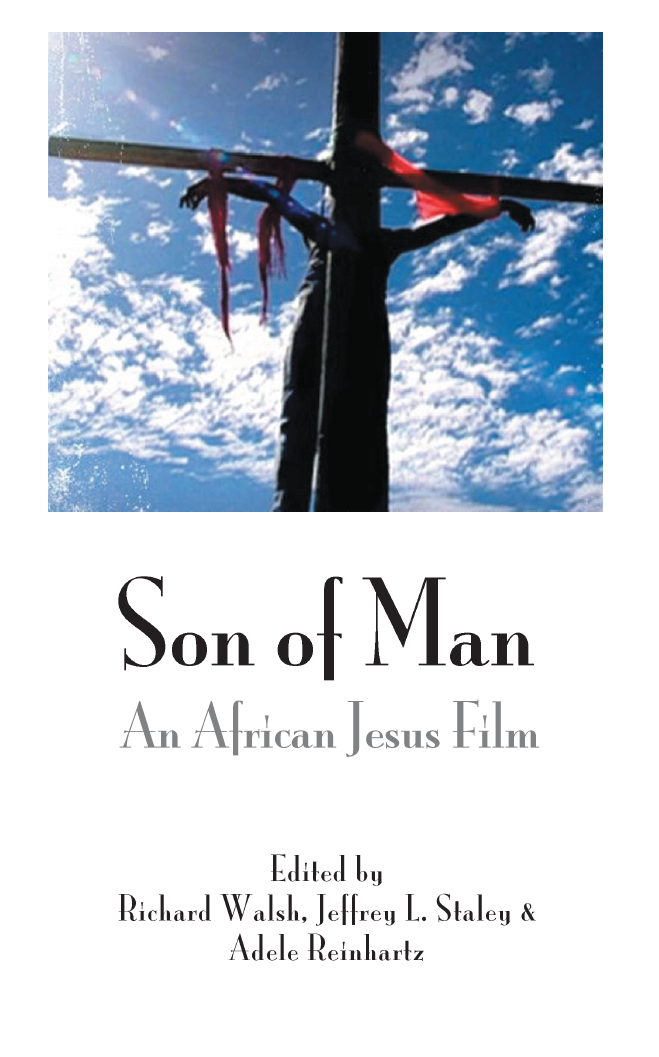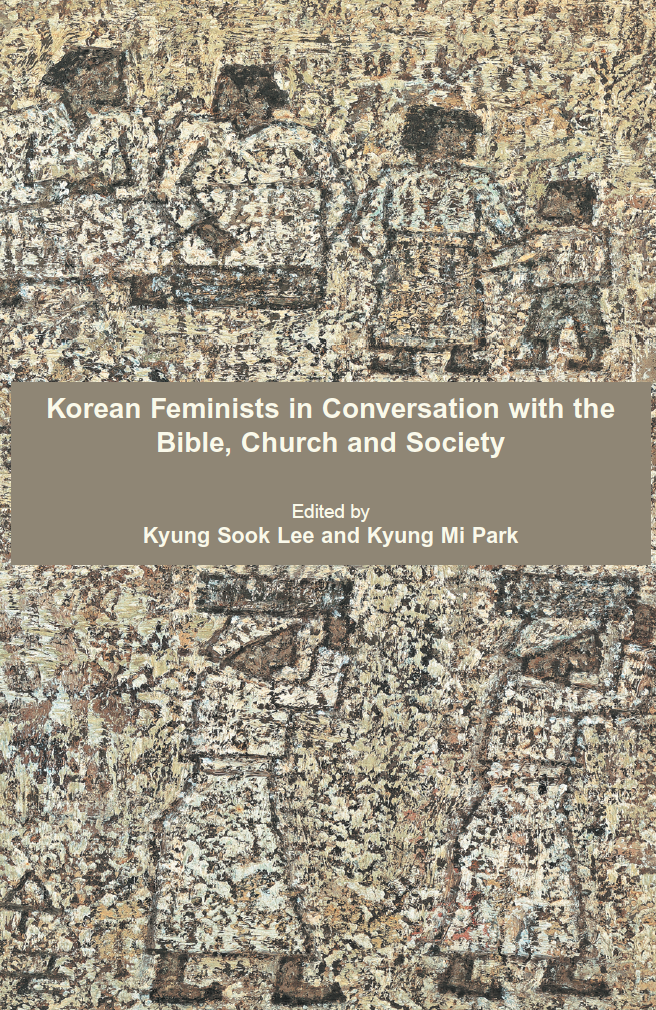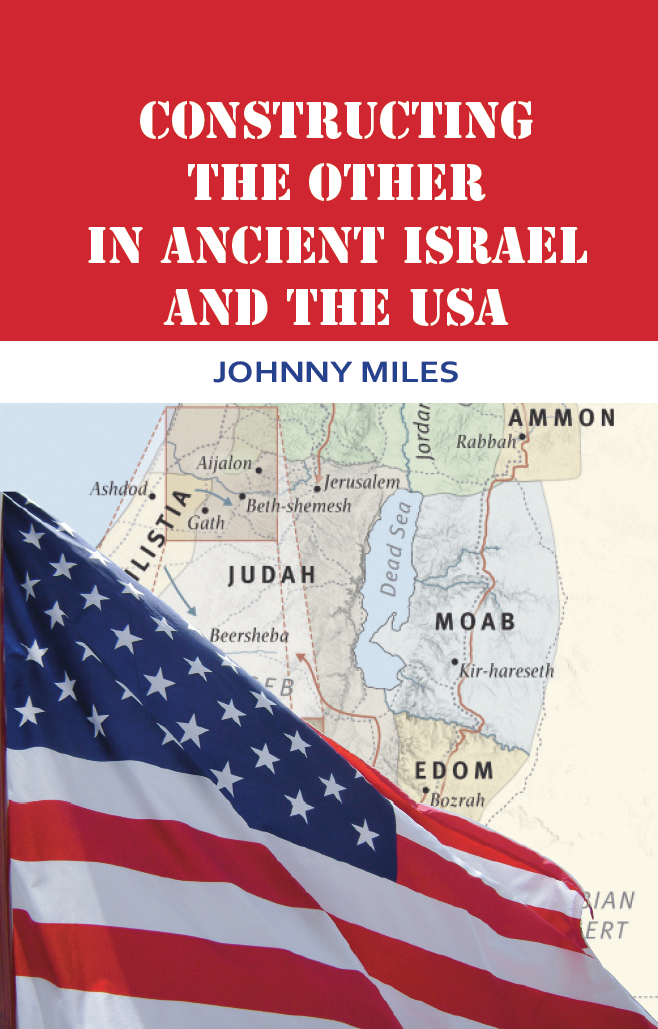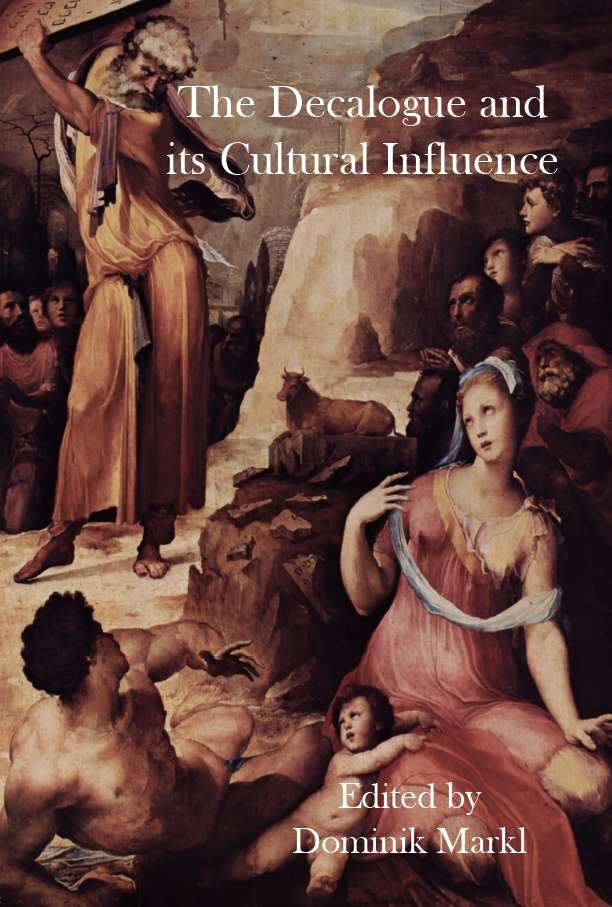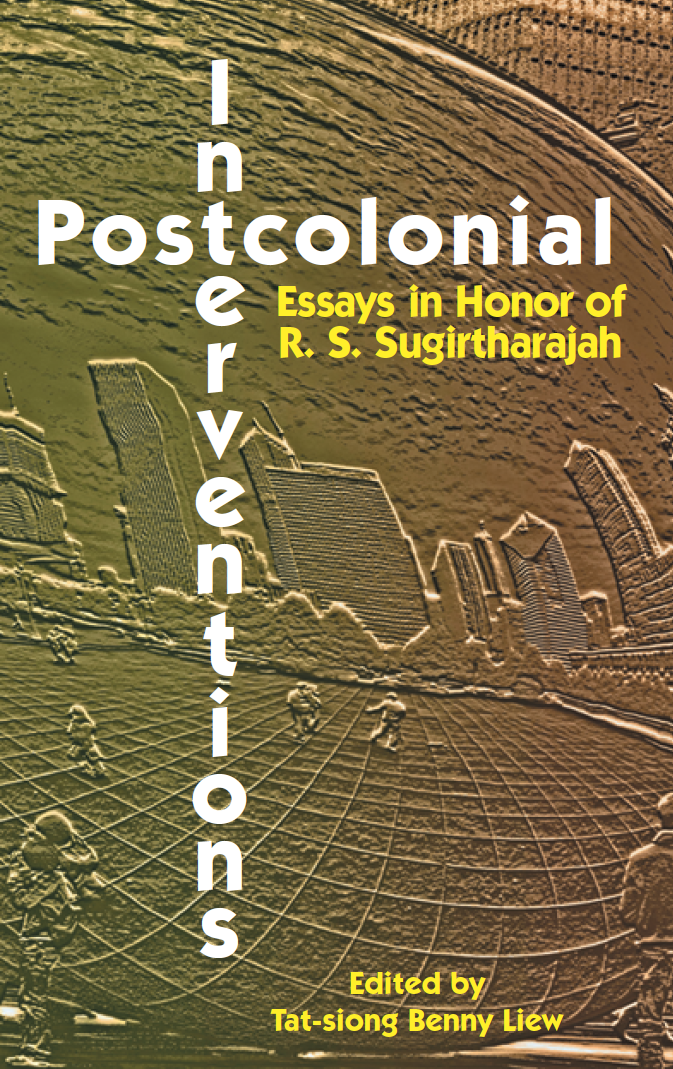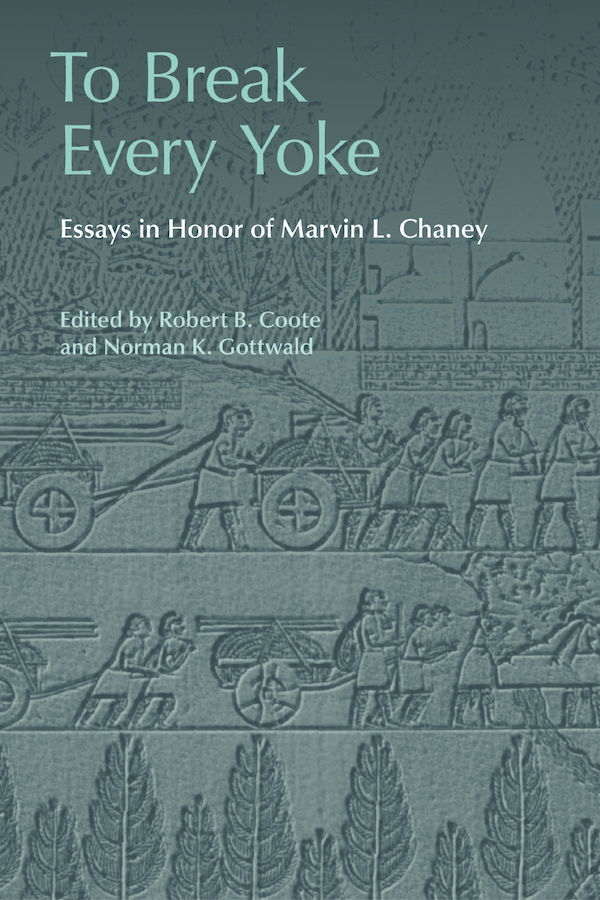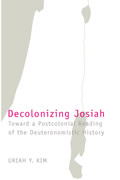Troubling Women and Land: Reading Biblical Texts in Aotearoa New Zealand
Published: Apr 2014
£60.00
What do women have to do with land? Biblical women such as Rahab, Achsah, and the daughters of Zelophehad have a great deal to do with Israel's land concerns, and their roles are indeed found troubling. And there are also questions to be asked of Miriam's role in the move from Egypt towards the 'promised' land; of Deborah, involved in a battle with a Canaanite commander; and of Huldah, whose troubling role in Josiah's reform is exposed in a queer-critical reading.
Reading such land-focused narratives from the context of Aotearoa New Zealand brings to the surface disturbing connections with that country's own quite particular experience of colonialism. Such findings call for feminist postcolonial scrutiny. Here, in response, the critical scope is widened by reading these texts contrapuntally with others concerning New Zealand's colonial and postcolonial experiences, both past and present.
Troubling Women and Land has a personal edge, with the author's voice frequently intruding, without apology, sometimes even holding imaginary conversations with characters and scholars, complementing the use of more traditional critical approaches. What underlies the book is a conviction that reading biblical texts matters in the politics of today's world.
Troubling Women and Land: Reading Biblical Texts in Aotearoa New Zealand
£60.00
What do women have to do with land? Biblical women such as Rahab, Achsah, and the daughters of Zelophehad have a great deal to do with Israel's land concerns, and their roles are indeed found troubling. And there are also questions to be asked of Miriam's role in the move from Egypt towards the 'promised' land; of Deborah, involved in a battle with a Canaanite commander; and of Huldah, whose troubling role in Josiah's reform is exposed in a queer-critical reading.
Reading such land-focused narratives from the context of Aotearoa New Zealand brings to the surface disturbing connections with that country's own quite particular experience of colonialism. Such findings call for feminist postcolonial scrutiny. Here, in response, the critical scope is widened by reading these texts contrapuntally with others concerning New Zealand's colonial and postcolonial experiences, both past and present.
Troubling Women and Land has a personal edge, with the author's voice frequently intruding, without apology, sometimes even holding imaginary conversations with characters and scholars, complementing the use of more traditional critical approaches. What underlies the book is a conviction that reading biblical texts matters in the politics of today's world.
Poverty, Wealth, and Empire: Jesus and Postcolonial Criticism
Published: Mar 2014
£45.00
Poverty, Wealth, and Empire presents an antidote to the liberal Jesuses that are constantly being constructed by theologians and historians in universities and seminaries in the West. Sandford's programme is to pay attention to those texts where Jesus appears hostile to his audiences, or even invokes the idea of divine judgment and violence against certain groups. Drawing on a variety of texts in the synoptic gospels, Sandford finds violent denouncements of the rich and those who neglect the needy to be a consistent theme in Jesus' teaching.
Rather than deploying biblical texts to support an anti-imperial or liberationist agenda, Sandford foregrounds troubling and problematic texts. Among them are wisdom sayings that justify poverty, texts that denigrate particular ethnic groups, and the ideology inherent in Jesus' teachings about the 'the Kingdom of God'. On such a basis Sandford is able to call into question the effectiveness of mainline Christian scholarly interpretations of Jesus in dealing with the most profound ethical problems of our time: poverty, domination and violence.
Always alert to the assumptions and prejudices of much Western New Testament scholarship, Sandford draws attention to its intellectual contradictions, and, furthermore, to the way in which this scholarship has sometimes served to undergird and justify systems of oppression —in particular by its demonstrable dodging of the issue of material poverty and its causes. Building on recent debates in postcolonial biblical criticism, Sandford offers a decidedly 'illiberal' reading of Jesus' sayings on divine judgment, focusing on the paradoxical idea of a 'nonviolent' Jesus who nevertheless pronounces divine violence upon the rich.
Poverty, Wealth, and Empire: Jesus and Postcolonial Criticism
£45.00
Poverty, Wealth, and Empire presents an antidote to the liberal Jesuses that are constantly being constructed by theologians and historians in universities and seminaries in the West. Sandford's programme is to pay attention to those texts where Jesus appears hostile to his audiences, or even invokes the idea of divine judgment and violence against certain groups. Drawing on a variety of texts in the synoptic gospels, Sandford finds violent denouncements of the rich and those who neglect the needy to be a consistent theme in Jesus' teaching.
Rather than deploying biblical texts to support an anti-imperial or liberationist agenda, Sandford foregrounds troubling and problematic texts. Among them are wisdom sayings that justify poverty, texts that denigrate particular ethnic groups, and the ideology inherent in Jesus' teachings about the 'the Kingdom of God'. On such a basis Sandford is able to call into question the effectiveness of mainline Christian scholarly interpretations of Jesus in dealing with the most profound ethical problems of our time: poverty, domination and violence.
Always alert to the assumptions and prejudices of much Western New Testament scholarship, Sandford draws attention to its intellectual contradictions, and, furthermore, to the way in which this scholarship has sometimes served to undergird and justify systems of oppression —in particular by its demonstrable dodging of the issue of material poverty and its causes. Building on recent debates in postcolonial biblical criticism, Sandford offers a decidedly 'illiberal' reading of Jesus' sayings on divine judgment, focusing on the paradoxical idea of a 'nonviolent' Jesus who nevertheless pronounces divine violence upon the rich.
Son of Man: An African Jesus Film
Published: Apr 2013
£50.00
The remarkable, award-winning film, Son of Man (2005), directed by the South African Mark Dornford-May, sets the Jesus story in a contemporary, fictional southern African Judea. While news broadcasts display the political struggles and troubles of this postcolonial country, moments of magical realism point to supernatural battles between Satan and Jesus as well. Jesus' Judean struggle with Satan begins with a haunting reprise of Matthew's 'slaughter of the innocents' and moves forward in a Steve Biko-like non-violent, community-building ministry, captured in graffiti and in the video footage that Judas takes to incriminate Jesus. Satan and the powers seemingly triumph when Jesus 'disappears', but then Mary creates a community that challenges such injustice by displaying her son's dead body upon a hillside cross. The film ends with shots of Jesus among the angels and everyday life in Khayelitsha (the primary shooting location), auguring hope of a new humanity (Genesis 1.26).
This book's essays situate Son of Man in its African context, exploring the film's incorporation of local customs, music, rituals, and events as it constructs an imperial and postcolonial 'world'. The film is to be seen as an expression of postcolonial agency, as a call to constructive political action, as an interpretation of the Gospels, and as a reconfiguration of the Jesus film tradition. Finally, the essays call attention to their interested, ideological interpretations by using Son of Man to raise contemporary ethical, hermeneutical, and theological questions. As the film itself concisely asks on behalf of the children featured in it and their politically active mothers, 'Whose world is this'?
Son of Man: An African Jesus Film
£50.00
The remarkable, award-winning film, Son of Man (2005), directed by the South African Mark Dornford-May, sets the Jesus story in a contemporary, fictional southern African Judea. While news broadcasts display the political struggles and troubles of this postcolonial country, moments of magical realism point to supernatural battles between Satan and Jesus as well. Jesus' Judean struggle with Satan begins with a haunting reprise of Matthew's 'slaughter of the innocents' and moves forward in a Steve Biko-like non-violent, community-building ministry, captured in graffiti and in the video footage that Judas takes to incriminate Jesus. Satan and the powers seemingly triumph when Jesus 'disappears', but then Mary creates a community that challenges such injustice by displaying her son's dead body upon a hillside cross. The film ends with shots of Jesus among the angels and everyday life in Khayelitsha (the primary shooting location), auguring hope of a new humanity (Genesis 1.26).
This book's essays situate Son of Man in its African context, exploring the film's incorporation of local customs, music, rituals, and events as it constructs an imperial and postcolonial 'world'. The film is to be seen as an expression of postcolonial agency, as a call to constructive political action, as an interpretation of the Gospels, and as a reconfiguration of the Jesus film tradition. Finally, the essays call attention to their interested, ideological interpretations by using Son of Man to raise contemporary ethical, hermeneutical, and theological questions. As the film itself concisely asks on behalf of the children featured in it and their politically active mothers, 'Whose world is this'?
Korean Feminists in Conversation with the Bible, Church and Society
Published: Sep 2011
£50.00
This book offers scholars and students outside Korea some insight into what forms feminist biblical interpretation takes in Korea and what approaches Korean feminists adopt for dealing with the Bible in their writing and their professional lives.
The contributors to this book represent a wide spectrum of the Korean feminist Christian movement. They include university and seminary teachers, ministers, and field workers. This book is a product of their numerous meetings and discussions on the practical issues that define contemporary Korean women's lives. In it, the contributors reflect on the diverse situations modern Korean women have faced and continue to struggle with, among them, the traditional religious culture based on Confucianism, economic globalization, postcolonialism, the problems of migrant women labourers, and the trauma of being forced into sexual slavery for Japanese soldiers during World War II. They view these situations in the light of the lives and experiences of women in the Old and New Testaments, and they look to the Bible for resources for dealing with them.
This is socially engaged biblical interpretation. It goes beyond the academic study of the Bible to a wider engagement with the church and with Korean society.
The volume is published in cooperation with Ewha Institute for Women's Theological Studies.
Korean Feminists in Conversation with the Bible, Church and Society
£50.00
This book offers scholars and students outside Korea some insight into what forms feminist biblical interpretation takes in Korea and what approaches Korean feminists adopt for dealing with the Bible in their writing and their professional lives.
The contributors to this book represent a wide spectrum of the Korean feminist Christian movement. They include university and seminary teachers, ministers, and field workers. This book is a product of their numerous meetings and discussions on the practical issues that define contemporary Korean women's lives. In it, the contributors reflect on the diverse situations modern Korean women have faced and continue to struggle with, among them, the traditional religious culture based on Confucianism, economic globalization, postcolonialism, the problems of migrant women labourers, and the trauma of being forced into sexual slavery for Japanese soldiers during World War II. They view these situations in the light of the lives and experiences of women in the Old and New Testaments, and they look to the Bible for resources for dealing with them.
This is socially engaged biblical interpretation. It goes beyond the academic study of the Bible to a wider engagement with the church and with Korean society.
The volume is published in cooperation with Ewha Institute for Women's Theological Studies.
Constructing the Other in Ancient Israel and the USA
Published: Mar 2011
£70.00
Always spoken for, never speaking. Always the object of discourse, never the subject. Constant focus upon Israel in the biblical texts by the interpretative tradition in the modern context has resulted, whether consciously or not, in the eclipse of voices of Israel's Palestinian neighbors. Interpretations reinforce the liminality of ethnic groups like the Edomites, Moabites, Ammonites, and Samaritans effected initially through re-presentation. Stereotyping becomes an ethno-typing strategy that establishes the presumed superiority of 'Israel', the identity construction of the 'others' as anything but superior, and the placement of each group stereotyped on the 'border'.
A postcolonial perspective, however, reveals that the focus of the commentary tradition extends liminality beyond the temporal. This study brings to speech the constructed voices of marginalized ethnic groups by juxtaposing those of fifth-century Yehud with those of nineteenth-century America placed there by stereotypic re-presentations. The examination of these re-presentations, though they intend to establish separation through an identity of difference, reveal instead a reflection of the identity of 'self' within 'other' despite efforts by an ethnic group identifying itself as 'Israel'.
Constructing the Other in Ancient Israel and the USA
£70.00
Always spoken for, never speaking. Always the object of discourse, never the subject. Constant focus upon Israel in the biblical texts by the interpretative tradition in the modern context has resulted, whether consciously or not, in the eclipse of voices of Israel's Palestinian neighbors. Interpretations reinforce the liminality of ethnic groups like the Edomites, Moabites, Ammonites, and Samaritans effected initially through re-presentation. Stereotyping becomes an ethno-typing strategy that establishes the presumed superiority of 'Israel', the identity construction of the 'others' as anything but superior, and the placement of each group stereotyped on the 'border'.
A postcolonial perspective, however, reveals that the focus of the commentary tradition extends liminality beyond the temporal. This study brings to speech the constructed voices of marginalized ethnic groups by juxtaposing those of fifth-century Yehud with those of nineteenth-century America placed there by stereotypic re-presentations. The examination of these re-presentations, though they intend to establish separation through an identity of difference, reveal instead a reflection of the identity of 'self' within 'other' despite efforts by an ethnic group identifying itself as 'Israel'.
Mark, Women and Empire: A Korean Postcolonial Perspective
Published: Mar 2010
£45.00
As Mark's Gospel moves toward its climax, four stories of women challenge Jesus in his mission to establish the empire of God against the backdrop of the Roman Empire: those of the poor widow (12.41-44), the anointing woman (14.1-11), the women at the cross and the burial (15.40-41, 47), and the women at the empty tomb (16.1-8). They are stories that would seem to demand both a feminist and a postcolonial perspective on the part of their readers —yet Kim's is the first reading of the Gospel that has taken an explicitly postcolonial feminist stance.
In addition to the feminist and the postcolonial themes, the third strand in Seong Hee Kim's approach arises from her Korean context, which provides her with the concept of Salim interpretation, that is, 'making things alive'. Starting from the reader's context, she develops a Salim hermeneutics for each of the four stories by engaging in a dialogue between the biblical story and the reader's use of her or his own imagination. The goal of her interpretation is such a making things alive, a mending of broken things, and an opening up of meaning —in contrast to the tendency of historical criticism, which has striven to identify a single, correct meaning in the biblical text.
Mark, Women and Empire: A Korean Postcolonial Perspective
£45.00
As Mark's Gospel moves toward its climax, four stories of women challenge Jesus in his mission to establish the empire of God against the backdrop of the Roman Empire: those of the poor widow (12.41-44), the anointing woman (14.1-11), the women at the cross and the burial (15.40-41, 47), and the women at the empty tomb (16.1-8). They are stories that would seem to demand both a feminist and a postcolonial perspective on the part of their readers —yet Kim's is the first reading of the Gospel that has taken an explicitly postcolonial feminist stance.
In addition to the feminist and the postcolonial themes, the third strand in Seong Hee Kim's approach arises from her Korean context, which provides her with the concept of Salim interpretation, that is, 'making things alive'. Starting from the reader's context, she develops a Salim hermeneutics for each of the four stories by engaging in a dialogue between the biblical story and the reader's use of her or his own imagination. The goal of her interpretation is such a making things alive, a mending of broken things, and an opening up of meaning —in contrast to the tendency of historical criticism, which has striven to identify a single, correct meaning in the biblical text.
Postcolonial Interventions: Essays in Honor of R.S. Sugirtharajah
Published: Aug 2009
£60.00
This collection of essays, with contributions by many long-term colleagues and collaborators of R. S. Sugirtharajah, Professor of Biblical Hermeneutics in the University of Birmingham, is meant to review, evaluate, celebrate, and honour his many scholarly contributions. The title of the collection signifies that the volume focusses not only on how we read socio-political interventions, but also on how reading can itself be a form of intervention. This focus on reading and intervention is in many ways most fitting, as Professor Sugirtharajah's biblical and theological hermeneutics have indeed been a significant force of intervention. His work has confronted and challenged many to see beyond a parochial mainstream, to perceive imperial and colonial dynamics in the Bible and in biblical studies, and to remain open to the transformative possibilities of reading from new sites as well as with new sights.
Postcolonial Interventions: Essays in Honor of R.S. Sugirtharajah
£60.00
This collection of essays, with contributions by many long-term colleagues and collaborators of R. S. Sugirtharajah, Professor of Biblical Hermeneutics in the University of Birmingham, is meant to review, evaluate, celebrate, and honour his many scholarly contributions. The title of the collection signifies that the volume focusses not only on how we read socio-political interventions, but also on how reading can itself be a form of intervention. This focus on reading and intervention is in many ways most fitting, as Professor Sugirtharajah's biblical and theological hermeneutics have indeed been a significant force of intervention. His work has confronted and challenged many to see beyond a parochial mainstream, to perceive imperial and colonial dynamics in the Bible and in biblical studies, and to remain open to the transformative possibilities of reading from new sites as well as with new sights.
Troublesome Texts: The Bible in Colonial and Contemporary Culture
Published: May 2008
£35.00
The nine substantial essays in this volume deal with three wide-ranging though interconnected issues: the perceived status and standing of the Bible today; aspects of the current state of biblical studies, especially the uneasy tension between the increasingly esoteric agenda of mainstream scholarship and the hermeneutical concerns of those occupied with marginal readings; the significance of postcolonial scholarship and pointers for its future at a time when empire has once again become a reality and a global subject of debate.
Among the essays here are an examination of Victorian reconstructions of the life of Jesus and of the Buddha, and how these discourses were moulded and motivated by orientalism, colonialism, race and issues of British national identity; the complexities of the use of the Bible in Sri Lanka, war-torn and beset with communal strife, when the Bible itself is rife with vengeance and punishment; the political and hermeneutical ramifications of the Asian tsunami, and the use of natural disasters for decolonization and recolonization; imperial intentions and a postcolonial sub-text evident in the Johannine letters; the fortunes of the English Bible as its promoters struggle to uphold its credibility in a market-driven culture; suicide-bombing and asylum-seeking. All of these are issues of global significance and concern, but they are hardly ever addressed by biblical scholars.
The essays contain both theoretical discussion and practical questions as to the usefulness of the Bible at a time when its contested role has been complicated by its tainted association with oppressive causes.
Troublesome Texts: The Bible in Colonial and Contemporary Culture
£35.00
The nine substantial essays in this volume deal with three wide-ranging though interconnected issues: the perceived status and standing of the Bible today; aspects of the current state of biblical studies, especially the uneasy tension between the increasingly esoteric agenda of mainstream scholarship and the hermeneutical concerns of those occupied with marginal readings; the significance of postcolonial scholarship and pointers for its future at a time when empire has once again become a reality and a global subject of debate.
Among the essays here are an examination of Victorian reconstructions of the life of Jesus and of the Buddha, and how these discourses were moulded and motivated by orientalism, colonialism, race and issues of British national identity; the complexities of the use of the Bible in Sri Lanka, war-torn and beset with communal strife, when the Bible itself is rife with vengeance and punishment; the political and hermeneutical ramifications of the Asian tsunami, and the use of natural disasters for decolonization and recolonization; imperial intentions and a postcolonial sub-text evident in the Johannine letters; the fortunes of the English Bible as its promoters struggle to uphold its credibility in a market-driven culture; suicide-bombing and asylum-seeking. All of these are issues of global significance and concern, but they are hardly ever addressed by biblical scholars.
The essays contain both theoretical discussion and practical questions as to the usefulness of the Bible at a time when its contested role has been complicated by its tainted association with oppressive causes.
Empire and Apocalypse: Postcolonialism and the New Testament
Published: Oct 2006
£18.50 – £37.00
In Empire and Apocalypse Stephen Moore offers us the most complete introduction yet to the emergent field of postcolonial biblical criticism. It includes an indispensable in-depth introduction to postcolonial theory and criticism together with a detailed survey of postcolonial biblical criticism.
Next come three substantial exegetical chapters on the Gospels of Mark and John and the Book of Revelation, which together demonstrate how postcolonial studies provide fresh conceptual resources and critical strategies for rethinking early Christianity's complex relations to the Roman Empire. Each of these three texts, to different degrees, Moore argues, mimic and replicate fundamental facets of Roman imperial ideology even while resisting and eroding it.
The book concludes with an amply annotated bibliography whose main section provides a comprehensive listing of work done to date in postcolonial biblical criticism.
Empire and Apocalypse: Postcolonialism and the New Testament
£18.50 – £37.00
In Empire and Apocalypse Stephen Moore offers us the most complete introduction yet to the emergent field of postcolonial biblical criticism. It includes an indispensable in-depth introduction to postcolonial theory and criticism together with a detailed survey of postcolonial biblical criticism.
Next come three substantial exegetical chapters on the Gospels of Mark and John and the Book of Revelation, which together demonstrate how postcolonial studies provide fresh conceptual resources and critical strategies for rethinking early Christianity's complex relations to the Roman Empire. Each of these three texts, to different degrees, Moore argues, mimic and replicate fundamental facets of Roman imperial ideology even while resisting and eroding it.
The book concludes with an amply annotated bibliography whose main section provides a comprehensive listing of work done to date in postcolonial biblical criticism.
Reframing Her: Biblical Women in Postcolonial Focus
Published: Jun 2006
£15.95 – £35.00
How does one read the story of Sarah and Hagar, or Jezebel and Rahab today, if one is a woman reader situated in a postcolonial society?
This is the question undergirding this work, which considers a selection of biblical texts in which women have significant roles. Employing both a gender and a postcolonial lens, it asks sharp questions both of the interests embedded in the texts themselves and of their impact upon contemporary women readers.
Whereas most postcolonial studies have been undertaken from the perspective of the colonized this work reads the texts from the position of a settler descendant, and is an attempt to engage with the disquietening and challenging questions that reading from such a location raises. Letters from early settler women in New Zealand, contemporary fiction, and personal reminiscence become tools for the task, complementing those traditionally employed in critical biblical readings.
Reframing Her: Biblical Women in Postcolonial Focus
£15.95 – £35.00
How does one read the story of Sarah and Hagar, or Jezebel and Rahab today, if one is a woman reader situated in a postcolonial society?
This is the question undergirding this work, which considers a selection of biblical texts in which women have significant roles. Employing both a gender and a postcolonial lens, it asks sharp questions both of the interests embedded in the texts themselves and of their impact upon contemporary women readers.
Whereas most postcolonial studies have been undertaken from the perspective of the colonized this work reads the texts from the position of a settler descendant, and is an attempt to engage with the disquietening and challenging questions that reading from such a location raises. Letters from early settler women in New Zealand, contemporary fiction, and personal reminiscence become tools for the task, complementing those traditionally employed in critical biblical readings.
Decolonizing Josiah: Toward a Postcolonial Reading of the Deuteronomistic History
Published: Jun 2006
£18.95 – £50.00
In the prevailing view, the Deuteronomistic History is the first and archetypical Western history, describing the creation of an Israelite state in Palestine as the origin of civilization in the region, a hegemonic culture rendering the other inhabitants of the country homeless in their own land. That view of Davidic domination over greater Palestine, fashioned under Josiah, has been given a modern nationalist reading by contemporary scholars, a reading consistent with the vast array of covert cultural confirmations of Euro-American imperial power.
How is it possible, Kim asks, given the all-encompassing sway of the colonialist reading of the Bible, to understand Josiah in other than colonialist terms? His answer: the historical imagination, making unfettered use of the tools of the critical historian, must be informed by the experience of those who have lived as the other, as the colonized, as not at home in their own land —which means, for Kim, the experience of being Asian American. The intellectual use of this experience creates his distinctive postcolonial perspective, as he draws attention to the connection between Western imperialism and the production of Western knowledge. Specifically, the author reads the story of Josiah intercontextually with the experience of Asian Americans from the space of liminality.
This is a passionate postcolonial reading of Josiah that, on one hand, critiques the failure of biblical studies to come to terms with its colonialist legacy and, on the other hand, connects the world of biblical studies to the world at large.
Decolonizing Josiah: Toward a Postcolonial Reading of the Deuteronomistic History
£18.95 – £50.00
In the prevailing view, the Deuteronomistic History is the first and archetypical Western history, describing the creation of an Israelite state in Palestine as the origin of civilization in the region, a hegemonic culture rendering the other inhabitants of the country homeless in their own land. That view of Davidic domination over greater Palestine, fashioned under Josiah, has been given a modern nationalist reading by contemporary scholars, a reading consistent with the vast array of covert cultural confirmations of Euro-American imperial power.
How is it possible, Kim asks, given the all-encompassing sway of the colonialist reading of the Bible, to understand Josiah in other than colonialist terms? His answer: the historical imagination, making unfettered use of the tools of the critical historian, must be informed by the experience of those who have lived as the other, as the colonized, as not at home in their own land —which means, for Kim, the experience of being Asian American. The intellectual use of this experience creates his distinctive postcolonial perspective, as he draws attention to the connection between Western imperialism and the production of Western knowledge. Specifically, the author reads the story of Josiah intercontextually with the experience of Asian Americans from the space of liminality.
This is a passionate postcolonial reading of Josiah that, on one hand, critiques the failure of biblical studies to come to terms with its colonialist legacy and, on the other hand, connects the world of biblical studies to the world at large.

